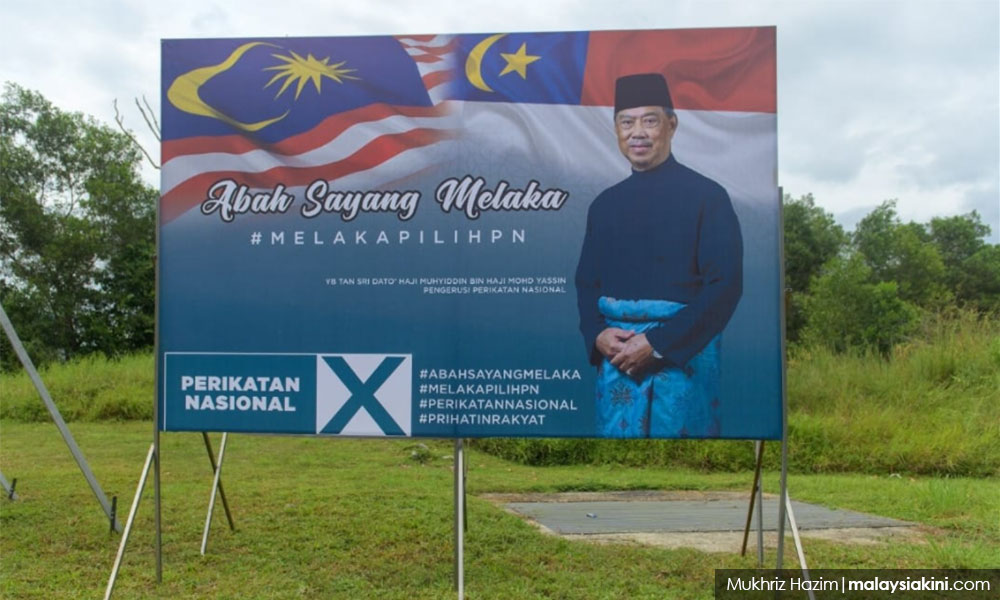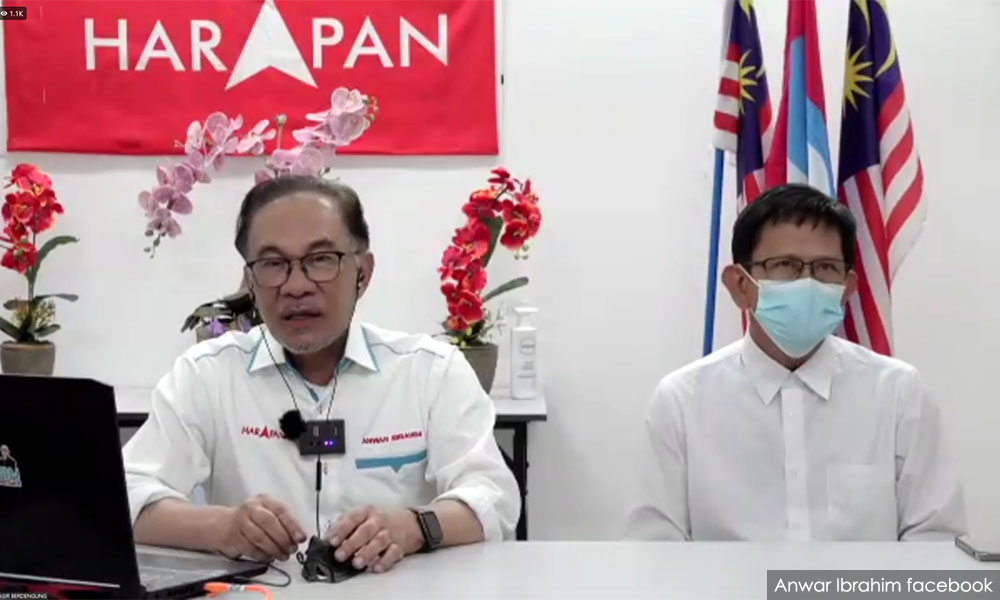Malacca voters go to the polls in a week with the outcome set to determine the landscape for the 15th general election expected next year.
A victory for Umno/BN, a drubbing for Perikatan Nasional (PN), and setbacks for Pakatan Harapan are all being touted as possible outcomes in a state contest that remains up in the air.
Nearly 80 percent of the seats are competitive, with a quarter of the seats (seven) too close to call at this juncture.
The election is still taking shape, as many voters are not really tuning into the campaign, with the outcome for Malacca and the nation still in the balance.
Many ask, why does this election matter beyond Malacca? So far, the focus what this means for the respective parties.
Here, in my second piece on the election, I suggest that Malacca polls will shape the national leadership landscape. While voters are being given more candidates to choose locally, there remains limited choice nationally.
In fact, a closer look suggests that Malacca’s outcome could strengthen the old political guard, making leadership transition harder for future new leaders.
Staying alive
A starting point is to recognise that Malacca’s contest involves elite political survival. Foremost, Malacca will determine whether PN will survive as a viable coalition option and whether Muhyiddin Yassin and Bersatu will still remain relevant.
Unlike Sabah, when Muhyiddin was the PM and he was featured prominently in the campaign, leading to gains for this party and a chief ministership in Kota Kinabalu, this time round he is fighting for his political life.
It is understandable he is taking on a more aggressive stance towards Umno and arguably adopting the most confrontational rhetoric of his career. Muhyiddin is running on his own vision of his tenure, making the Malacca vote a referendum on his short term in office. He is claiming ‘moral authority’ and hammering his former party Umno.

This dynamic is not just about whether Bersatu can win a few seats (quite tough without a minimum 10 percent gain in partisan votes in some places); the electoral outcome will determine the viability of Bersatu nationally post-Muhyiddin’s PMship, its standing within state governments and fate of the two main factions within the party.
Not to be left out is how Malacca is serving as an arena for Najib Abdul Razak’s redemption among the party faithful.
His greed and governance caused the defeat of the Umno in GE14. He is now using a place of a shameful loss as a step to secure a role as Umno’s ‘new’ saviour, to pave his way back to power by bringing the factions together and being the ‘party loyalist’.
The Najib rebranding has been ongoing from months after GE14 and by-elections in Pahang but is taking on greater traction as Umno party president Ahmad Zahid Hamidi has been increasingly pushed aside.
Flush with returned resources, a Malacca victory offers greater security for Najib himself (and his cronies) as well as vindication within Umno/BN.

Staying relevant
There are also implications for PKR president Anwar Ibrahim, who pushed for fielding Umno stalwart now PKR Idris Haron despite the public disdain of this unprincipled move.
Malacca is the first major Harapan contest with him as the leader post GE14. Sabah was Warisan and Shafie Apdal’s test. Potential losses for Harapan in Malacca will revive concerns about Anwar’s leadership and open the coalition to persistent concerns that it has left a reform agenda behind in favour of seeking political power.
A Harapan victory in Malacca will likely further consolidate Anwar as the PM candidate for GE15, and in doing so also mean that the opposition may be splintered with more reform voices internally (and externally) unhappy with short-term political wheeling and dealing.
‘Getting the numbers’ thinking is far from what voters want, as they are more concerned about the income numbers to make ends meet. What Harapan stands for under Anwar remains unclear.
Arguably, the leader most impacted short-term will be Ismail Sabri Yaakob himself. Ismail Sabri appears to gain by not being involved in the poll, staying out of the political fray publicly.
He is seen to strengthen his amiable consensus image, holding factions together as he holds onto the government. If the outcome is a splintered one, his power is further consolidated as a consensus-builder.
At the same time, Malacca’s polls will push Ismail Sabri to face inevitable battles within his own party, especially if Umno makes gains.
Quietly, Zahid’s role has reduced as he undergoes medical treatment in Germany. Yet, the Umno party election looms with Ismail having to potentially deal with a stronger mentor if Najib is empowered by an as-yet determined Malacca outcome.
Ismail Sabri risks being further positioned as a ‘holding’ PM, warming the seat for others in the party. A generation transition in the party could be stunted, ironically in part by an unwillingness of Ismail Sabri to bring more younger Umno members into his own cabinet, which will inevitably be another battleground if elections are put off.
Fights of old guard
Behind these personal fortunes are long-standing leadership rivalries. Malacca continues battles among Najib and Muhyiddin, Muhyiddin and his former rivals in Umno, especially from Johor.
While Pejuang is not contesting, Anwar is still looking over his shadow for Dr Mahathir Mohamad, as the 2018 Malacca Harapan victory was shaped by the former PM then holding Harapan’s leadership reigns.
Can Anwar secure his own Malacca victory? Will Mahathir still play a role, even a spoiler one as he is even brought into a battle with Muhyiddin?
For voters, the persistence of these old guard battles continues to hold the system hostage to moving the country forward. They contribute to cynicism.
It is easier to look local, to examine the strengths of local candidates (and they are some promising ones) and to rely on what is familiar and immediate, to avoid looking too hard at what the national implications may mean.
Yet, for the broader picture, Malacca’s polls show the persistent weaknesses of national leadership and a country wrestling with the need for new leaders, new ideas to address the problems created by leaders who have held onto power too long. - Mkini
BRIDGET WELSH is a senior research associate at the Hu Fu Centre for East Asia Democratic Studies and a senior associate fellow of The Habibie Centre. She currently is an honorary research associate of the University of Nottingham, Malaysia's Asia Research Institute (Unari) based in Kuala Lumpur. She tweets at @dririshsea.
The views expressed here are those of the author/contributor and do not necessarily represent the views of MMKtT.




No comments:
Post a Comment
Note: Only a member of this blog may post a comment.